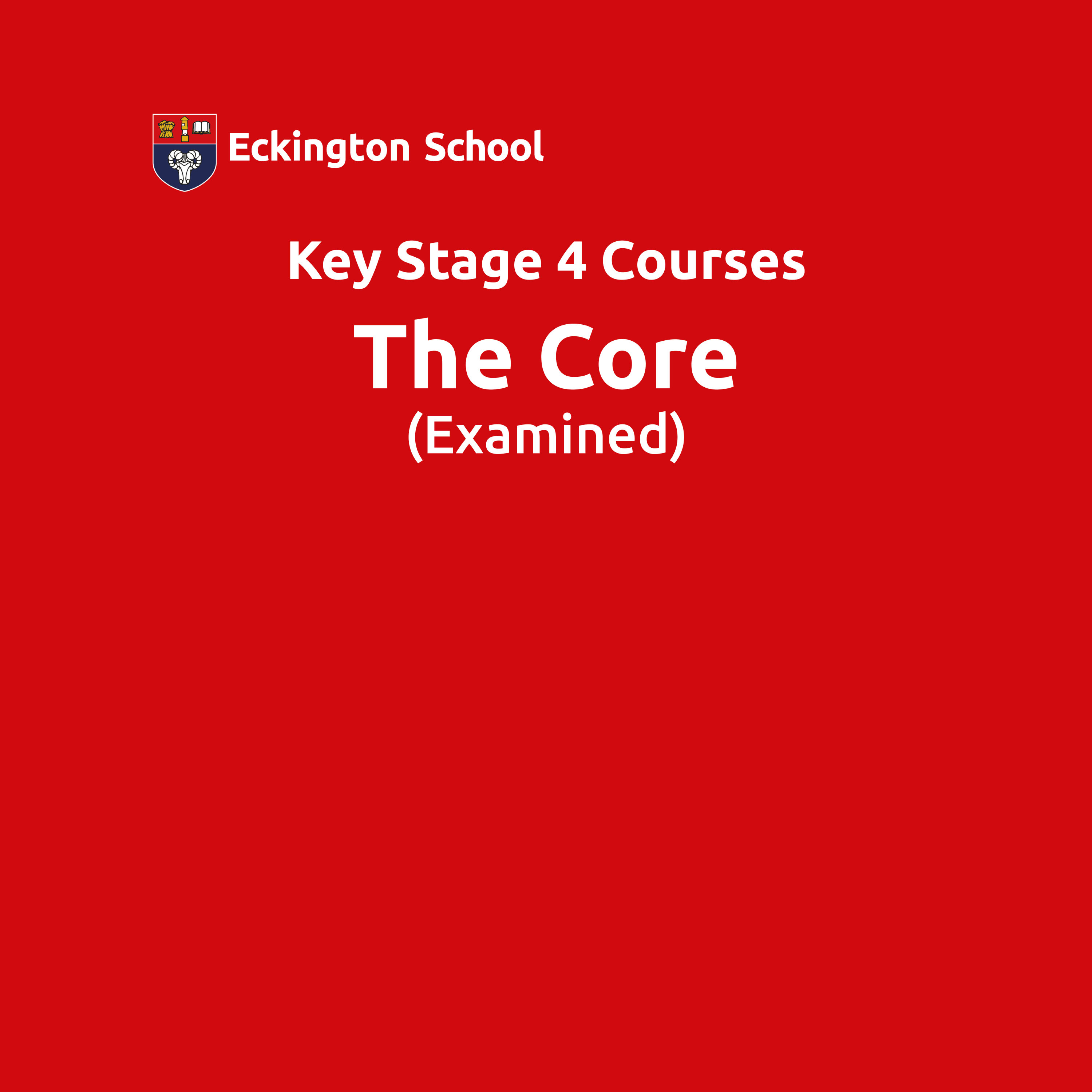Courses
We offer a broad and balanced curriculum, for:
Click the appropriate button below to find the details for each subject offered in each key stage.
Further details of our curriculum are available on the curriculum page.

Overview
Science - Combined
Introduction
At key stage 4, students either follow the AQA 'Trilogy' science specification or the AQA single science (GCSEs in biology, chemistry and physics).
AQA Trilogy combines key elements of biology, chemistry, and physics. It is structured to provide students with a solid foundation in scientific principles, preparing them for further study at either A-level or BTEC and practical applications in the scientific field.
The course is divided into overarching topics, with each topic covering essential concepts in biology, chemistry, and physics. These topics include cell biology, chemical changes, energy changes, particle model of matter, organic chemistry, waves and forces. Within each topic, students delve into specific content areas, gaining a deep understanding of fundamental scientific principles and their real-world applications.
Assessment in the trilogy science specification is conducted through six written examinations at the end of Year 11, leading to two GCSEs in science.
Qualification
GCSE
Awarding body
Pearson
Course leader
H Streets
Assessment
- Examination: 100%, comprised of:
- A minimum of 15% of the final grade will come from practical assessment questions, based on 21 required practical activities.
- A further minimum of 20% of the marks will come from questions that test applications of mathematics in science.
- Assessment consists of six 1 hour and 15 minutes exams: two biology, two chemistry and two physics papers.
- The papers are tiered; foundation grades 1 to 5 and higher grades 4 to 9. This leads to two grades known as a linked grade.
- Non-examined assessment: n/a
Curriculum
We follow the AQA Combined Sciences Trilogy specification.
This is a course which gives students experience in the main themes of biology, chemistry and physics, along with developing skills needed to ‘work scientifically’. The AQA specification says, 'We have included all the parts of what good science is at GCSE level: whether it be investigating, observing, experimenting or testing out ideas and thinking about them. The way scientific ideas flow through the specification will support you in building a deep understanding of science'.
Curriculum roadmap
Topics
Biology
- 1. Cell biology
- 2. Organisation
- 3. Infection and response
- 4. Bioenergetics
- 5. Homeostasis and response
- 6. Inheritance, variation and evolution
- 7. Ecology
Chemistry
- 8. Atomic structure and the periodic table
- 9. Bonding, structure, and the properties of matter
- 10. Quantitative chemistry
- 11. Chemical changes
- 12. Energy changes
- 13. The rate and extent of chemical change
- 14. Organic chemistry
- 15. Chemical analysis
- 16. Chemistry of the atmosphere
- 17. Using resources
Physics
- 18. Energy
- 19. Electricity
- 20. Particle model of matter
- 21. Atomic structure
- 22. Forces
- 23. Waves
- 24. Magnetism and electromagnetism
Skills and requirements
Skills learned
Students are required to develop their abilities to design experiments, collect and analyse data, and draw conclusions during practical work which is completed throughout key stage 4. This hands-on approach not only reinforces theoretical knowledge but also cultivates critical thinking and scientific enquiry skills.
Beyond the classroom
Future pathways
- GCSEs in science demonstrate a wide range of skills to employers/colleges. It would be an expected qualification for all young people, including those wishing to become an electrician, or beautician, and is also essential for any student who wishes to study science A-levels, or to have a career in areas such as teaching, nursing, engineering, laboratory analysis, physiotherapy, medicine and veterinary science.
- Grade 6-6 or above in GCSE combined science is required for further study at Eckington in science A-level. Grade 5’s would be acceptable onto most BTEC level 3 courses.




